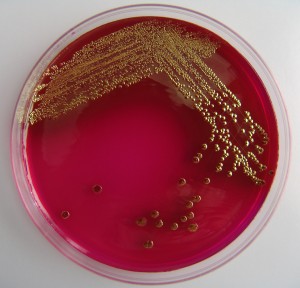Invisible World: Exploring Microscopic Life in the Ocean

Originally appears in the Spring 2011 issue
The ocean is home to a wide range of organisms, many which are of great value to people. Fisheries such as tuna and anchovy support national economies throughout the world. In addition, some marine organisms are vital to traditional cultures, such as whales to the Maori, while others have become icons in pop-culture—think Shamu, Jaws, or Nemo. These familiar ocean critters, however, would not exist without tiny marine organisms that are invisible without magnification. These microscopic organisms not only form the base of the marine food web but they also recycle essential nutrients, such as nitrogen, phosphorous, and carbon.
Microscopic life in the ocean is highly diverse, consisting of the single-celled prokaryotes, (bacteria and archaea), single-celled eukaryotes (like phytoplankton and protists) and multi-celled zooplankton. Each of these groups of organisms plays an essential role in the marine environment. Phytoplankton are primary producers, providing energy for the entire food web. Zooplankton and protists are consumers, and in turn, they serve as food for larger zooplankton or small fish. Bacteria and archaea are decomposers and recyclers, allowing important nutrients contained in waste to be recycled and used again by phytoplankton (known as the “microbial loop”). Plankton and bacteria together create an entirely microscopic food web composed of several trophic levels.
Since students may have difficulty conceptualizing what they cannot see, the following series of activities use an inquiry-based approach to help bring to life this “invisible”, yet essential world of marine organisms to any grade 6-12 classroom. Students are given the task of determining which types of microscopic organisms live in a local body of water – whether marine, brackish, or fresh water. They then design tools and techniques to collect data and draw conclusions about the different groups of aquatic microorganisms and how these groups interact.
This content is restricted to subscribers only.
If you are not yet a subscriber, please consider taking out a subscription here.
If you are an existing subscriber, kindly log in or contact us at info@greenteacher.com for more information.





